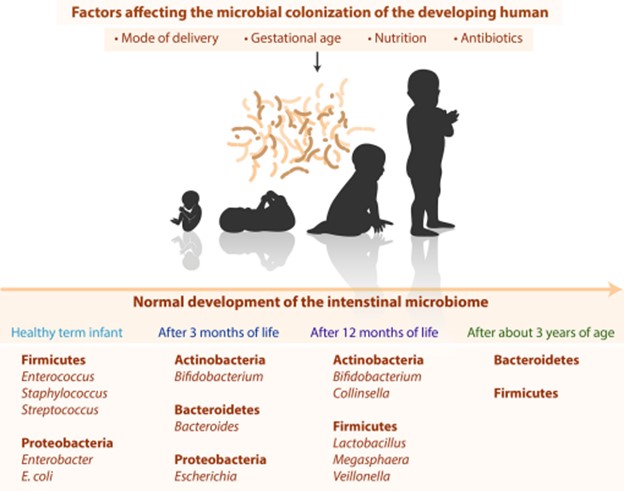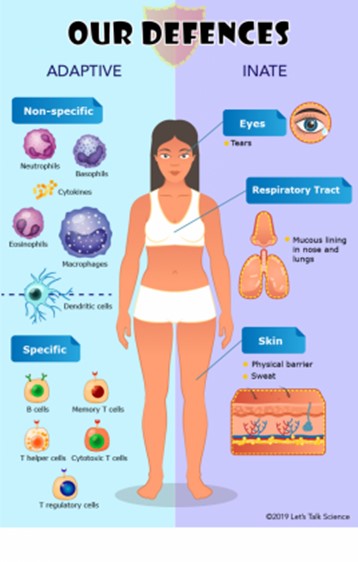What is the normal flora?
A variety of microbial species found in certain areas of the human body.
A group of infectious parasites that cause diarrheal diseases.
The genetic material of bacteria housed within a true nucleus.
The protein coat surrounding the viral genome.
The Correct Answer is A
The normal flora refers to the microbial community that colonizes on the skin and mucus membrane.
Normal flora can be found in many human body sites, including the skin, respiratory tract, urinary tract, and digestive tract.

Choice B is incorrect because normal flora does not refer to a group of infectious parasites that cause diarrheal diseases.
Choice C is incorrect because normal flora does not refer to the genetic material of bacteria housed within a true nucleus.
Choice D is incorrect because normal flora does not refer to the protein coat surrounding the viral genome.
Nursing Test Bank
Naxlex Comprehensive Predictor Exams
Related Questions
Correct Answer is C
Explanation
Innate immunity represents the first line of defense to an intruding pathogen.
The innate immune system is a series of nonspecific defenses that make up the innate immune system.

These defenses are not directed against any one pathogen but instead provide a guard against all infection.
Choice A is incorrect because adaptive immunity is activated when pathogens are able to bypass innate immune defenses.
Choice B is incorrect because antibodies are part of the adaptive immune system and are produced by B cells.
Choice D is incorrect because T cells are part of the adaptive immune system and assist B cells or directly kill infected cells.
Correct Answer is A
Explanation
In a well-designed experiment, all variables apart from the treatment should be kept constant between the control group and treatment group.
This means researchers can correctly measure the entire effect of the treatment without interference from confounding variables.

Choice B) Independent variable and dependent variable is incorrect because these are not groups but rather variables.
The independent variable is manipulated by the experimenters while the dependent variable is measured to see if it changes as a result of the manipulation.
Choice C) Experimental group and non-experimental group is incorrect because a non-experimental group is not a term used in experimental design.
The correct term for the group that does not receive the treatment is control group.
Choice D) High level and low level of the independent variable is incorrect because these are levels of the independent variable, not groups.
In an experiment, there can be multiple levels of the independent variable, but they are applied to different groups (e.g. control group, treatment group).
Whether you are a student looking to ace your exams or a practicing nurse seeking to enhance your expertise , our nursing education contents will empower you with the confidence and competence to make a difference in the lives of patients and become a respected leader in the healthcare field.
Visit Naxlex, invest in your future and unlock endless possibilities with our unparalleled nursing education contents today
Report Wrong Answer on the Current Question
Do you disagree with the answer? If yes, what is your expected answer? Explain.
Kindly be descriptive with the issue you are facing.
